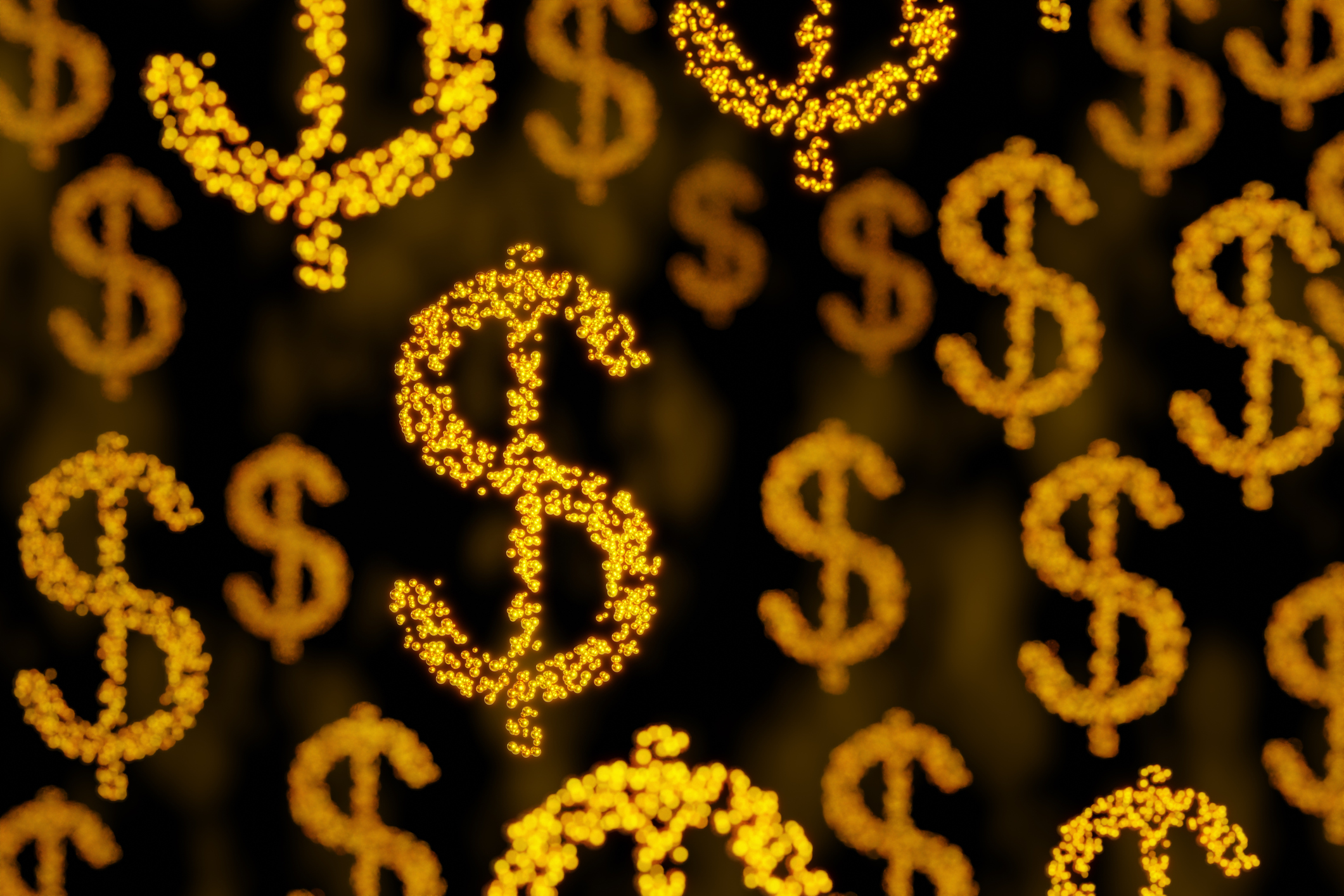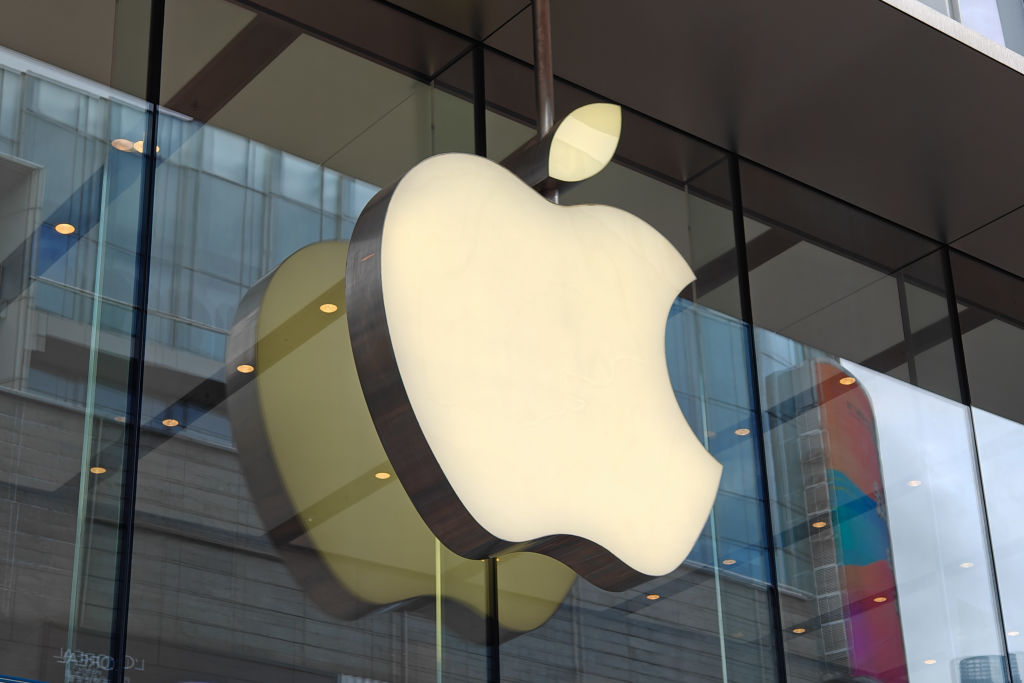
Profit and prosper with the best of Kiplinger's advice on investing, taxes, retirement, personal finance and much more. Delivered daily. Enter your email in the box and click Sign Me Up.
You are now subscribed
Your newsletter sign-up was successful
Want to add more newsletters?

Delivered daily
Kiplinger Today
Profit and prosper with the best of Kiplinger's advice on investing, taxes, retirement, personal finance and much more delivered daily. Smart money moves start here.

Sent five days a week
Kiplinger A Step Ahead
Get practical help to make better financial decisions in your everyday life, from spending to savings on top deals.

Delivered daily
Kiplinger Closing Bell
Get today's biggest financial and investing headlines delivered to your inbox every day the U.S. stock market is open.

Sent twice a week
Kiplinger Adviser Intel
Financial pros across the country share best practices and fresh tactics to preserve and grow your wealth.

Delivered weekly
Kiplinger Tax Tips
Trim your federal and state tax bills with practical tax-planning and tax-cutting strategies.

Sent twice a week
Kiplinger Retirement Tips
Your twice-a-week guide to planning and enjoying a financially secure and richly rewarding retirement

Sent bimonthly.
Kiplinger Adviser Angle
Insights for advisers, wealth managers and other financial professionals.

Sent twice a week
Kiplinger Investing Weekly
Your twice-a-week roundup of promising stocks, funds, companies and industries you should consider, ones you should avoid, and why.

Sent weekly for six weeks
Kiplinger Invest for Retirement
Your step-by-step six-part series on how to invest for retirement, from devising a successful strategy to exactly which investments to choose.
Russia’s invasion of Ukraine has turned into the largest ground war on European soil since World War II. And along with causing immense loss of human life and destruction across many of Ukraine’s cities, it is roiling the global economic landscape – and causing many of the world’s largest companies to pull out of Russia as the country increasingly becomes a global pariah.
The economic fallout from this conflict is wide-ranging, in part because of both countries’ importance to the commodity markets. Ukraine and Russia are both global leaders in production of food commodities, including wheat and sunflower oil.
Russia is also the world’s No. 3 oil producer, behind only the United States and Saudi Arabia, and on March 8, America moved to ban Russian oil and other energy exports. Meanwhile, Russia dominates the European energy market, as its largest supplier of natural gas, which is used for home heating and power generation.
From just $107.88 $24.99 for Kiplinger Personal Finance
Become a smarter, better informed investor. Subscribe from just $107.88 $24.99, plus get up to 4 Special Issues

Sign up for Kiplinger’s Free Newsletters
Profit and prosper with the best of expert advice on investing, taxes, retirement, personal finance and more - straight to your e-mail.
Profit and prosper with the best of expert advice - straight to your e-mail.
But another wrinkle has developed: American and international corporations alike are taking note of the global revulsion against Russia’s actions, and many have taken measures to stop doing business in the country. Their actions range from limiting access to services to pulling out of Russia altogether.
We’ll take a quick look at some of the biggest companies to distance themselves from Russia, then provide a table listing all the notable companies that have so far announced they will limit or halt their Russian operations.
Note: Changes are happening quickly, and we’re seeing a pattern of companies announcing relatively minor penalties followed by larger initiatives as the invasion continues.
McDonald's
McDonald's (MCD) announced March 8 that it would be temporarily shuttering all 850 locations in Russia.
As one of the most visible global companies still operating in Russia as of late, consumer pressure for McDonald's to follow suit was high. It finally buckled, with CEO Chris Kempckinski writing to employees that "our values mean we cannot ignore the needless human suffering unfolding in Ukraine."
It's no small sacrifice, either: Roughly 9% of the company's annual revenues are derived from Russia and Ukraine. And while McDonald's has closed is locations, it will still pay its 62,000 employees in Russia, as well as employees in Ukraine from the 100 temporarily closed stores there.
Food and Drink Companies
Around the same time, Starbucks (SBUX), Coca-Cola (KO) and PepsiCo (PEP) all joined McDonald's in proclaiming that they would be suspending business operations in Russia.
PepsiCo stands to suffer the biggest financial hit; the company says about 4% of its annual revenues come from Russia. However, while it will be suspending sales and advertising of beverage brands such as its namesake Pepsi, as well as 7Up, it will keep selling baby food, formula, milk and dairy products, citing "the humanitarian aspect of our business."
Coca-Cola is suspending all business in the country, which typically accounts for 1% to 2% of revenues.
Starbucks, which has more than 100 third-party-run locations in Russia, has even less revenue exposure, at less than 1% of annual sales. It will temporarily shutter all of its locations in the country, though it has pledged to provide support to the roughly 2,000 employees impacted by the move.
Apple
The world’s most valuable publicly traded company announced on March 1 that it was freezing its business in Russia.
Apple (AAPL) had halted exports to Russia and limited Apple Pay service the previous week, after the U.S. government announced sanctions against Russian banks. But starting March 1, Apple expanded its measures, including halting sales of all products to Russia through the online Apple Store and restricting Russian news outlet apps to use only within Russia.
Soon after, the price for Apple products like iPhones and MacBooks reportedly doubled on the Russian gray market.
For what it’s worth, Statista estimates the Russian market generated roughly $2.5 billion in sales for Apple in 2020 – less than 1% of the company’s $274.3 billion in total revenue for that year.
Netflix
Netflix (NFLX) is a prime example of how quickly the situation is evolving.
When I started writing this article, Netflix was taking a cautious approach, putting a hold on future projects and acquisitions from Russia. By the time the article was finished, several hours later, Netflix announced it had suspended service in Russia altogether.
No streaming, Russian series that were in production have been halted. And the state-run channels the company was required to carry by the government are offline.
Shell
Energy companies have been among the most noteworthy firms taking measures against Russia.
On March 1, the multinational oil and gas giant Shell (SHEL) said it would exit all Russian operations – a permanent move, as opposed to a pause in operations. This includes abandoning Shell’s 27.5% stake in the flagship Sakhalin 2 liquid natural gas (LNG) plant. That plant produced 11.5 million tonnes of LNG annually that was exported to Asian markets including China. Shell also is pulling out of the Nord Stream 2 Baltic gas pipeline, which connects Russia to Germany, and exiting the Salym Petroleum Development, a joint venture with Russia’s Gazprom (OGZPY).
According to Reuters, Abandoning the Russian market could cost Shell around $3 billion. And the Sakhalin 2 and Salym ventures contributed $700 million to Shell’s net earnings in 2021.
Interestingly, on March 4, Shell reportedly bought a tanker full of Russian oil at a record-low discount. After those reports emerged, the company pledged it would use alternatives to Russian oil where possible. Until it is able to find alternative supplies, Shell will donate any profits from Russian oil to a Ukraine aid fund.
Visa and Mastercard
Credit card processors Visa (V) and Mastercard (MA) have suspended operations in Russia, further hobbling the country’s access to the global financial system. It was estimated that in 2020, 74% of credit card and debit card transactions in Russia were made through Visa or Mastercard.
Cards issued to Russian citizens will still work until their expiration date, with Russia’s Mir payment processing system taking over. However, Russian Visa and Mastercard cards will no longer work outside of the country, nor will they function for international online purchases. Non-Russian citizens will not be able to use their cards in-person in Russia, or to buy goods online from Russia.
Other Major Companies Exiting Russia
Each of the following companies has announced some sort of actions against Russia, as of March 24, from a partial suspension of operations to temporary full halts to permanent exits from the Russian arms of their businesses.
| Company Name | Ticker | Publicly Traded in U.S.? |
|---|---|---|
| ABB Ltd | ABB | Y |
| Accenture | ACN | Y |
| Activision Blizzard | ATVI | Y |
| Adidas | ADDYY | Y |
| Adobe | ADBE | Y |
| Advanced Micro Devices | AMD | Y |
| AerCap | AER | Y |
| Airbnb | ABNB | Y |
| Airbus | EADSY | Y |
| Alphabet | GOOGL | Y |
| Amazon.com | AMZN | Y |
| American Airlines | AAL | Y |
| American Express | AXP | Y |
| ASOS | ASOMY | Y |
| Aston Martin | ARGGY | Y |
| ASUSTeK Computer Inc | ASUUY | Y |
| AT&T | T | Y |
| Atlassian | TEAM | Y |
| Autodesk | ADSK | Y |
| Bank of China | BACHY | Y |
| Basis Technologies | N/A | N |
| BlackRock | BLK | Y |
| BMW | BMWYY | Y |
| Boeing | BA | Y |
| Bolt | N/A | N |
| Boohoo Group | BHOOY | Y |
| BP | BP | Y |
| Burberry Group | BURBY | Y |
| ByteDance (TikTok owner) | N/A | N |
| Canada Goose | GOOS | Y |
| Carlsberg | CABGY | Y |
| CD Projekt | OTGLY | Y |
| Chanel | N/A | N |
| Cisco Systems | CSCO | Y |
| CMA CGM | N/A | N |
| Coca-Cola | KO | Y |
| Comcast | CMCSA | Y |
| CRH PLC | CRH | Y |
| Daimler Truck | DTRUY | Y |
| Dell Technologies | DELL | Y |
| Deloitte | N/A | N |
| Delta Air Lines | DAL | Y |
| Deutsche Post AG (DHL) | DPSGY | Y |
| DuckDuckGo | N/A | N |
| Electrolux AB | ELUXY | Y |
| Electronic Arts | EA | Y |
| Eni | E | Y |
| Equinor | EQNR | Y |
| Ericsson | ERIC | Y |
| Ernst & Young | N/A | N |
| Estee Lauder | EL | Y |
| Expedia | EXPE | Y |
| Exxon Mobil | XOM | Y |
| FedEx | FDX | Y |
| Ford Motor | F | Y |
| Fortum | FOJCY | Y |
| General Motors | GM | Y |
| GoDaddy | GDDY | Y |
| Goldman Sachs | GS | Y |
| Harley-Davidson | HOG | Y |
| Hennes & Mauritz (H&M) | HNNMY | Y |
| Hermès International | HESAY | Y |
| Honda Motor | HMC | Y |
| HSBC Holdings | HSBC | Y |
| IKEA | N/A | N |
| Industria de Diseño Textil (Zara, Bershka, Massimo Dutti) | IDEXA | Y |
| ING Groep | ING | Y |
| Intel Corporation | INTC | Y |
| International Business Machines | IBM | Y |
| Kering (Gucci, Saint Laurent) | PPRUY | Y |
| KPMG | N/A | N |
| Lego | N/A | N |
| Levi Strauss | LEVI | Y |
| LG Electronics | N/A | N |
| Live Nation Entertainment | LYV | Y |
| LVMH Moet Hennessy Louis Vuitton | LVMUY | Y |
| Maersk | AMKBY | Y |
| Mango | N/A | N |
| Mastercard | MA | Y |
| Mazda | MZDAY | Y |
| McDonald's | MCD | Y |
| McKinsey & Company | N/A | N |
| Mediterranean Shipping Company | N/A | N |
| Mercedes-Benz Group | DMLRY | Y |
| Meta Platforms | FB | Y |
| Moody's | MCO | Y |
| Netflix | NFLX | Y |
| Niantic (Pokemon Go) | N/A | N |
| Nike | NKE | Y |
| Nintendo | NTDOY | Y |
| Nissan Motor | NSANY | Y |
| Nokia | NOK | Y |
| Nokian Tyres | N/A | N |
| Nordea Bank | NRDBY | Y |
| Norsk Hydro | NHYDY | Y |
| Nvidia | NVDA | Y |
| OMV Aktiengesellschaft | OMVKY | Y |
| Oracle | ORCL | Y |
| Ørsted | DNNGY | Y |
| Paramount Global | PARA | Y |
| PayPal Holdings | PYPL | Y |
| PepsiCo | PEP | Y |
| Prada | PRDSY | Y |
| PricewaterhouseCoopers | N/A | N |
| Puma | PUMSY | Y |
| N/A | N | |
| Renault | RNLSY | Y |
| Roku | ROKU | Y |
| Samsung | N/A | N |
| Sandvik | SDVKY | Y |
| SAP | SAP | Y |
| Scania | N/A | N |
| Shopify | SHOP | Y |
| Siemens | SIEGY | Y |
| Siemens Energy | SMNEY | Y |
| Snap | SNAP | Y |
| Sony | SONY | Y |
| Spotify | SPOT | Y |
| Stanley Black & Decker | SWK | Y |
| Starbucks | SBUX | Y |
| Suzuki Motor | SZKMY | Y |
| Swatch Group | SWGAY | Y |
| Taiwan Semiconductor | TSM | Y |
| Tata Motors (Land Rover, Jaguar) | TTM | Y |
| TJX | TJX | Y |
| Toyota Motor | TM | Y |
| TWTR | Y | |
| Uber Technologies | UBER | Y |
| Under Armor | UAA | Y |
| United Airlines | UAL | Y |
| United Parcel Service | UPS | Y |
| Visa | V | Y |
| Volkswagen | VWAGY | Y |
| Volvo | VLVLY | Y |
| Walt Disney | DIS | Y |
| WebMoney | N/A | N |
| Western Union | WU | Y |
| WPP | WPP | Y |
| YIT | N/A | N |
| Yum! Brands, Inc. | YUM | Y |
Profit and prosper with the best of Kiplinger's advice on investing, taxes, retirement, personal finance and much more. Delivered daily. Enter your email in the box and click Sign Me Up.

Brad Moon is a tech industry veteran who contributes to a range of publications including Forbes, InvestorPlace and MSN Money and is an original member of the award-winning GeekDad blog. Over the past decade, he has also written about technology for Wired, Gizmodo, Shaw Media, About.com, The Winnipeg Free Press and others.
-
 5 Vince Lombardi Quotes Retirees Should Live By
5 Vince Lombardi Quotes Retirees Should Live ByThe iconic football coach's philosophy can help retirees win at the game of life.
-
 The $200,000 Olympic 'Pension' is a Retirement Game-Changer for Team USA
The $200,000 Olympic 'Pension' is a Retirement Game-Changer for Team USAThe donation by financier Ross Stevens is meant to be a "retirement program" for Team USA Olympic and Paralympic athletes.
-
 10 Cheapest Places to Live in Colorado
10 Cheapest Places to Live in ColoradoProperty Tax Looking for a cozy cabin near the slopes? These Colorado counties combine reasonable house prices with the state's lowest property tax bills.
-
 Why I Trust These Trillion-Dollar Stocks
Why I Trust These Trillion-Dollar StocksThe top-heavy nature of the S&P 500 should make any investor nervous, but there's still plenty to like in these trillion-dollar stocks.
-
 Stocks Slip Ahead of July CPI Report: Stock Market Today
Stocks Slip Ahead of July CPI Report: Stock Market TodayThe latest inflation updates roll in this week and Wall Street is watching to see how much of an impact tariffs are having on cost pressures.
-
 Nasdaq Ends the Week at a New High: Stock Market Today
Nasdaq Ends the Week at a New High: Stock Market TodayThe S&P 500 came within a hair of a new high, while the Dow Jones Industrial Average still has yet to hit a fresh peak in 2025.
-
 Stocks Swing Lower as Eli Lilly, Fortinet Spiral: Stock Market Today
Stocks Swing Lower as Eli Lilly, Fortinet Spiral: Stock Market TodayThe main indexes finished well off their session highs after a disappointing batch of corporate earnings reports.
-
 Stocks Rally on Apple Strength: Stock Market Today
Stocks Rally on Apple Strength: Stock Market TodayThe iPhone maker will boost its U.S. investment by $100 billion, which sent the Dow Jones stock soaring.
-
 The Best Stocks of the Century
The Best Stocks of the CenturyAs we near the 25-year mark, we looked at which stocks have returned the most. Here are the 10 best stocks of the century so far.
-
 Stock Market Today: Nasdaq Hits a New High as Nvidia Soars
Stock Market Today: Nasdaq Hits a New High as Nvidia SoarsA big day for Nvidia boosted the Nasdaq, but bank stocks created headwinds for the S&P 500.
-
 Apple Stock's a Buy Ahead of Apple Event 2024
Apple Stock's a Buy Ahead of Apple Event 2024Apple stock is on Wall Street's radar ahead of the tech giant's annual September product event, which begins on Monday. Here's what analysts are saying and what you can expect to see.
